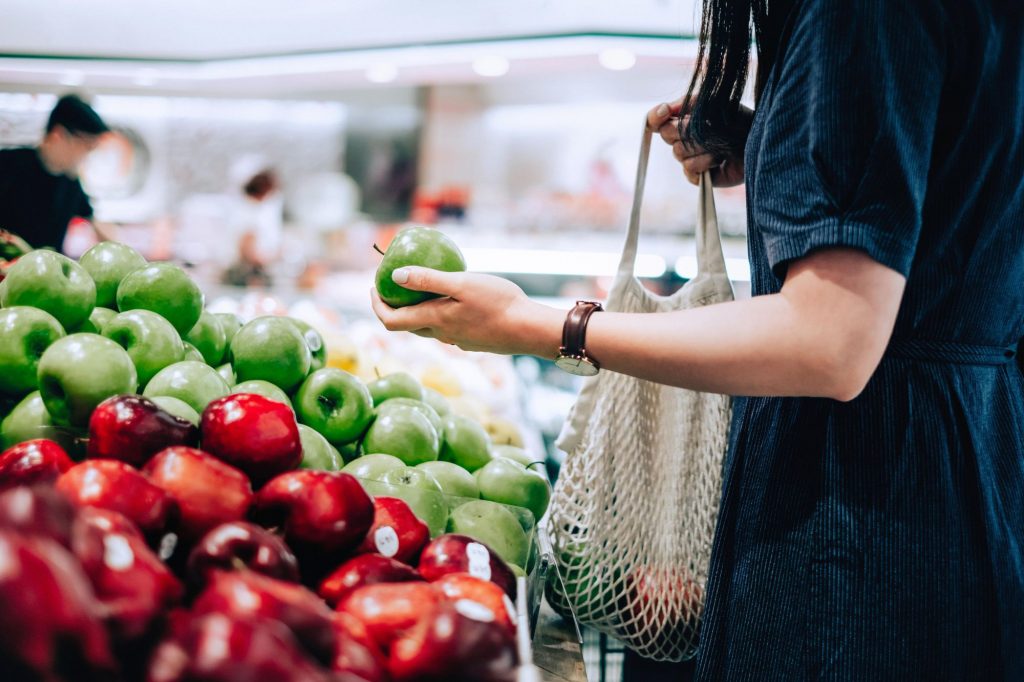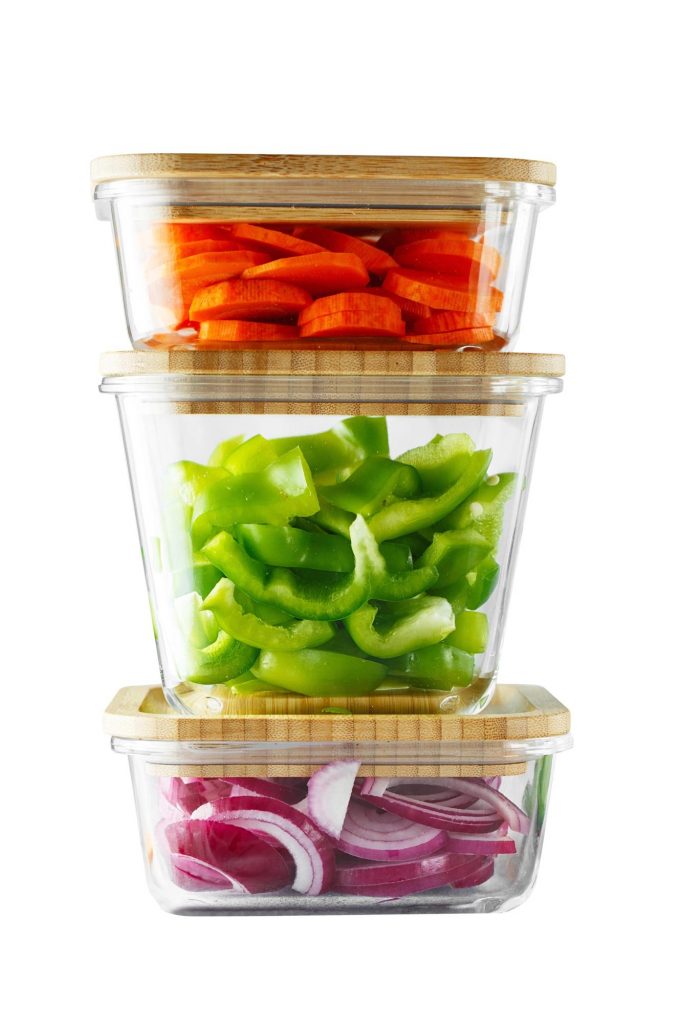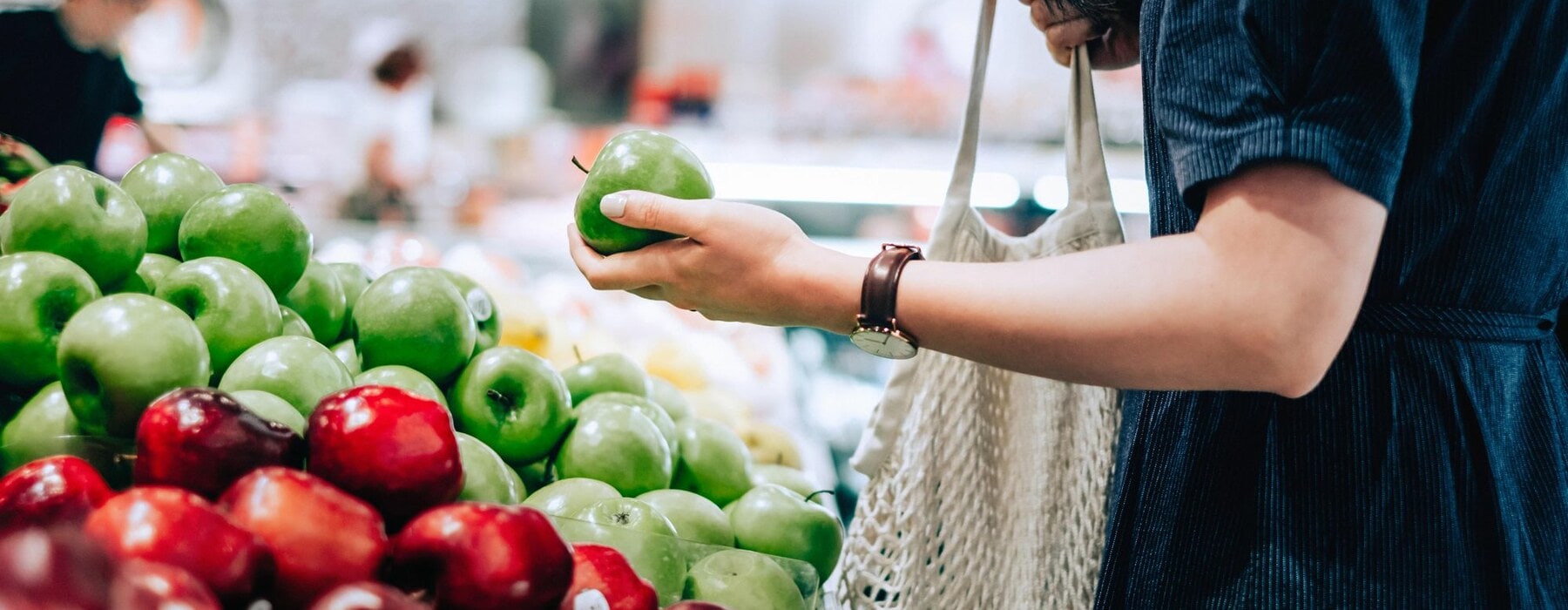Supermarkets are making changes for the better, but we also have to do our bit for a more sustainable shopping experience. Our eco-expert shares her tips.
This is a voiceover created by AI and therefore some of the words or pronunciations may be incorrect. We hope you still enjoy this listening experience
From avoiding plastic to palm oil and pesticides, trying to make sustainable choices while grocery shopping is a minefield. You can help your weekly shop be lighter on the planet by making and growing some of your own food, and taking your own containers to bulk food stores, butchers, fruit and vege shops and farmers’ markets – where you can often find more ethical, organic options with less packaging. But these things take time, and the one-stop shop at the local supermarket can prove a far easier choice.
According to the Vox article titled “The complicated gender politics of going zero waste”, plastic- packaged items such as frozen food and sliced bread helped make it easier for women to enter the workforce when they were introduced, but now, as well as managing work and raising families, women have the added expectation of being sustainable – and that can mean shunning these conveniences.
The reality is most Kiwis shop at supermarkets for the ease and price point (3.5 million shop at Countdown every week), so having more sustainable options available there is important. While taking your own containers and bags, and choosing items with less packaging and better ingredients is a start, it shouldn’t be solely up to shoppers to make these adjustments.

Countdown’s 2025 Sustainability Plan shows the supermarket chain is taking responsibility for making its operations more sustainable, thereby making it easier for consumers. By 2025, Countdown’s food waste to landfill is set to be down to zero, all eggs will be cage-free, 100% of power will come from green sources and 20% of senior leadership roles will go to Māori and Pasifika New Zealanders. There are a number of other goals, many of which are already underway, including seeking to avoid slavery in the production chain, limiting products which contribute to deforestation and halving the use of plastic packaging, while making the remaining packaging options more easily recyclable. Countdown is also working with farmers and suppliers with a view to cultivating more sustainable and regenerative agriculture practices across the fresh food supply chain.
New World – which, along with Pak’nSave and Four Square, is owned by Foodstuffs – is also making waves with its eco practices, notably its Food in the Nude reduced-plastic produce sections. This concept was introduced in 2017 in one store, and is now seen in 36 of 42 South Island stores.
Last year, Countdown trialled a similar idea. Unwrapped was a 10-week plastic-free (or as close as possible) produce trial held in three Auckland supermarkets. Unfortunately, the trial coincided with the first lockdown, which may explain why sales went down (and, consequently, food waste went up) as people may have deemed plastic packaging a safer option when faced with Covid-19.
The supermarket group’s general manager of corporate affairs, safety and sustainability, Kiri Hannifin, believes the idea was right but it was too much, too soon. Now the chain is aiming to tackle one food category at a time, and will work on the less contentious items first – grapes, which were trialled both loose and in boxes (both to negative reviews) will be staying in plastic bags for now.
Kiri also believes plastic produce bags should be eliminated, but doesn’t want to replace them with another single-use item such as a paper bag.
Instead, the emphasis will be on education and providing reusable bags for purchase, much like when plastic bags were first banned at checkouts. There was backlash then, but people are used to it now – however, that was ultimately government mandated so people had to get on board.
Both Foodstuffs and Countdown are also working on bringing their emissions down, and now have electric delivery trucks as part of their fleets. All Countdown supermarkets and North Island Foodstuffs outlets allow customers to bring their own containers to butchery, seafood, and delicatessen counters (plus the bakery counter at Foodstuffs), but Kiri says only around 5% of Countdown shoppers take advantage of this. Both this statistic and the results of the plastic-free trial are a reminder that while corporations need to make changes, if individuals don’t get on board with sustainability initiatives, show our support to drown out the complaints and keep pushing for more change, businesses have less incentive to become more sustainable.
If individuals don’t get on board…businesses have less incentive to become more sustainable.
As Kiri says: “The more people ask of us, the more we can do… there’s enormous power in consumer advocacy.”
Top tip

Keep containers and produce bags with your shopping bags so you don’t forget them – reuse containers and small bags you have at home, rather than buying new ones. Reusable produce bags can be used for bulk foods and bread rolls as well as fruit and veges.







